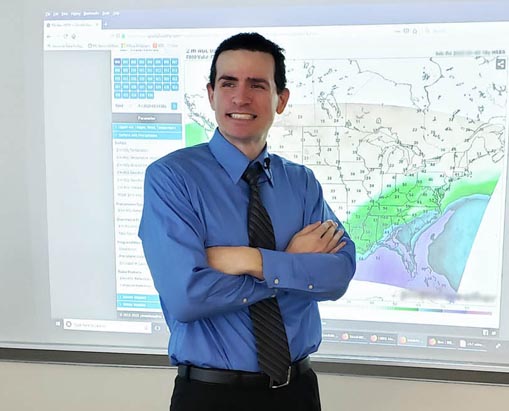I survived. My life drastically changed.
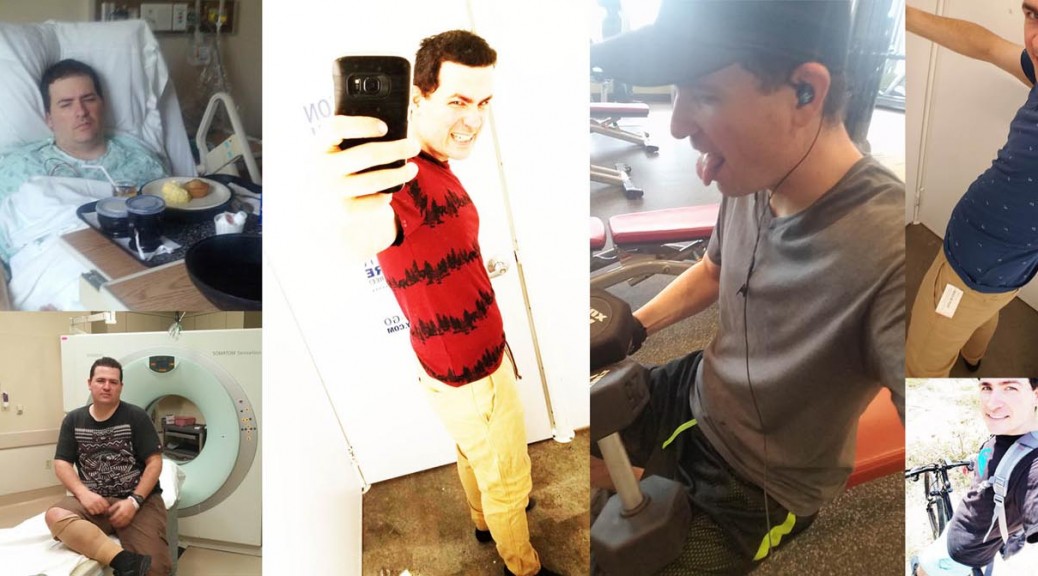
Life can suddenly throw something big at you when you least expect it. I wanted to share a dramatic story that involves survival, losing everything, depression, bold determination, self-motivation, and incredible results. I know there are countless others out there that are scared, full of anxiety, looking for support, and are ready to change their lives. It’s not easy, but it can be done. I changed my life, lost over 100 pounds, and have a new life. It was science that saved my life and gave me the best systematic way to solve my personal problems and achieve several rare accomplishments. Science can help you make important decisions, ease your mind before surgery, lose weight without the rip-off scams, and stay focused on what matters. After reading this, I hope that I encouraged you to apply science in your lives and see the difference it can make. This is a very personal story, I hope you take the time to read it. And if you’re going through something similar now, take my advice. Although this story is terrifying, and it could happen to anyone, you should never live every day in fear, and you should never be afraid to rely on sound science to save your life.
Life is Dynamic
One sudden event could ruin your life. Think about that for a minute. Your age doesn’t matter. There’s no guarantee in life.
Life is hard enough, especially in a time when bills are high and the pace of technology means you’re left in the dust if you don’t keep up. Worry starts from your teen years and only gets worse. Who am I? What am I going to do in life? What’s my purpose? What matters to me? Some don’t even ask those questions until something big happens. Many people are living paycheck to paycheck and that means any single major event can suddenly ruin your life, credit, marriage, schoolwork, career, relationship, and even make you question your sanity. This is a harsh reality, primarily because of our broken healthcare and economic system. Sometimes, when you live comfortably, it’s also easy to ignore the pain of others.
When something terrible happens to you, you have to use perspective. Bad things happen in nature and as a scientist I’ve grown to accept this, but it’s not in our pop-culture nature to be so receptive to challenges that make us re-examine our ideas or change our ways.
I have a story to share and I think it’s sort of interesting so please read this whole thing. Life and death are never far away.
It Came as A Surprise
One day I woke up in the middle of the night with burning pain, unlike I have ever experienced before. I thought I was having a nightmare, but I realized I was awake and moaning in my own bed around 3:30 in the middle of the night. Imagine something so painful that your body forces you to wake up from a deep sleep. You’re not groggy, you’re immediately awake and in the worst pain of your life. It was so unreal that I kept asking myself out loud, “what the hell, ah… Ahhhhh…”, over and over. The first time it happened, the pain went away on its own within minutes. It was so painful that it scared me and made me constantly worry that it would return at any time.
I cancelled plans, classes, and stopped going out with friends. I also became a bit more depressed than usual – something was interfering with my life.
Time went by and I was about to dismiss this painful event as some unexplained phenomena. A few days later, I was sitting watching TV and it suddenly started again. It started as kind of an indigestion-like sensation. Within a few seconds, I had a pulsing, burning pain in the upper-right quadrant of my abdominal area – almost towards the center of my chest. The pain never radiated but was slightly worse than before and it lasted several minutes before going way on its own again.
By this time, I knew something was wrong. I was pretty sure as an EMT that this wasn’t a heart attack, but without any comprehensive testing I couldn’t definitively reassure myself that this wasn’t something more serious. I knew the pain was getting worse and these strange attacks were getting longer and more frequent. I must have had about 20 progressively worse “attacks” since the first one.
Terrifying
One attack was so bad that I was lying in bed for 12 hours straight, moaning in the worst pain of my life. It felt like my chest was being ripped apart and the pain would be a constant throbbing, swaying between painful and extremely painful for hours. This was the worst attack yet. After tensing for 12 hours, for the next several days my entire body was aching. The aching was a result of muscles tensing for so long – as if I was in the gym exercising my muscles too much. I knew something was really wrong.
But I didn’t know what to do because I didn’t have good health insurance at the time and really had no people I could depend on. I was well aware of the cost of serious medical attention. Imagine the panic from the pain – but then panic from the fact that you had to deal with it because you didn’t have the money. A serious hospitalization would ruin me financially. My life was sort of getting better and then this happened. I was willing to die and it seemed like a reasonable option given the pain.
I considered drinking myself to death or just walking into busy traffic one night because the pain too much to handle. It seemed like I had no way out. The plethora of unqualified, ignorant “natural health” blog content just made matters worse. I was searching the internet for options, out of desperation for my situation. It was unsettling to realize I couldn’t afford to address this serious medical issue.
I’m thankful that I had a science education that was good enough to remind me not take the advice of random internet content. Some internet sites suggested “liver cleanses” where you drink several bottles of olive oil. Others warned me not to see doctors because they will “kill me” or were “only after money to remove my body parts”. Between not having good health insurance and getting bad advice, the whole situation was terrifying.
I was in a terrifying situation that was getting worse. I had to work, I had no close friends, life goes on, and something big was about to happen – I could sense it.
Luckily, by January of the next year, I spent more money on a new health insurance plan and now had decent coverage. It was one of the best decisions I ever made because of what happened next.
One early morning around 5am, I suddenly felt like my chest was being ripped apart. By this time, I had noticed that these painful events typically occurred within minutes of eating or drinking anything. The pain was so bad this time that I was crawling on the ground, cursing, and getting closer and closer to passing out. I had better health insurance and finally went to the emergency room.
They immediately took me into the ER, after seeing me in so much sweat, having a hard time breathing, and “hot as hell.” I immediately ran through my past pertinent history, as someone with emergency medical training would. This helps determine the nature of the case for emergency room experts. Within seconds they performed an electrocardiogram, which was normal. This was a slight relief to me because at least my heart was fine. The pain was still unbearable. I was guarding my abdomen and sweating like I was running a marathon in 110-degree heat in the middle of summer.
A few minutes later, the doctor ordered a Pepcid push. Pepcid, also known as Famotidine, is a H2 antagonist. It can temporarily reduce acid production and also other linked spasms (complicated process) so it’s often given to people with pain like mine. In an emergency setting, unlike at home, you can inject a patient with a medication in a way that creates better absorption and a faster effect. I was glad to have gone to the emergency room to be treated by experts, rather than try the potentially toxic “liver cleanse” suggested by ignorant misinformation bloggers. Less than a minute after the Pepcid push, my pain suddenly disappeared. About 15 minutes afterwards, I was relaxing in a hospital bed and stopped sweating. What a relief, I thought. But it wasn’t over.
Frustration
The painful attacks would continue. I realized every time I went to the emergency room, it was costing me more and more. Urgent care wasn’t an option and general practitioners didn’t have the specialization to get to the bottom of anything. There were no over the counter products to manage my condition. I was out of options and I knew this was a problem for experts to solve. I had another painful attack and this time nothing they gave me in the emergency room helped.
I was discharged and was still in so much pain that I walked out to my car in the hospital parking lot and couldn’t even sit down in it. I ended up leaning over the hood for about an hour moaning until the pain went down enough to drive a few blocks home. I was frustrated. This is the American healthcare system. I was someone that wrote about this before, but didn’t experience it first-hand as a patient. Not only was I terrified, I was frustrated.
I spent the next several weeks researching the science journals, going over my signs and symptoms, anatomy, medications, surgeries, and other epidemiological information. I was glad to have a graduate education in the area because it helped me make informed decisions about my own health. I knew that I needed testing done but it wasn’t easy to find a doctor. You can’t just order these tests yourself, they require a prescription from a specialist. And you can’t just see a specialist, you have to get a referral. I was a broken person trying to use a broken system.
These attacks had been going on for over a month. I couldn’t eat much because it would lead to an attack. I could sip some water, eat a few crackers, and a diet of beef broth – that was it. I was too afraid to eat or drink anything else. I have never gone through something like this before.
In the middle of it all, I had to somehow stay positive and fight to find a specialist covered under my insurance – and one that could see me sometime soon. I knew it was all going to cost me, but it had to be done. It took hours every day of searching, phone calls, repeating stories, and arguing to get anywhere with the US healthcare system.
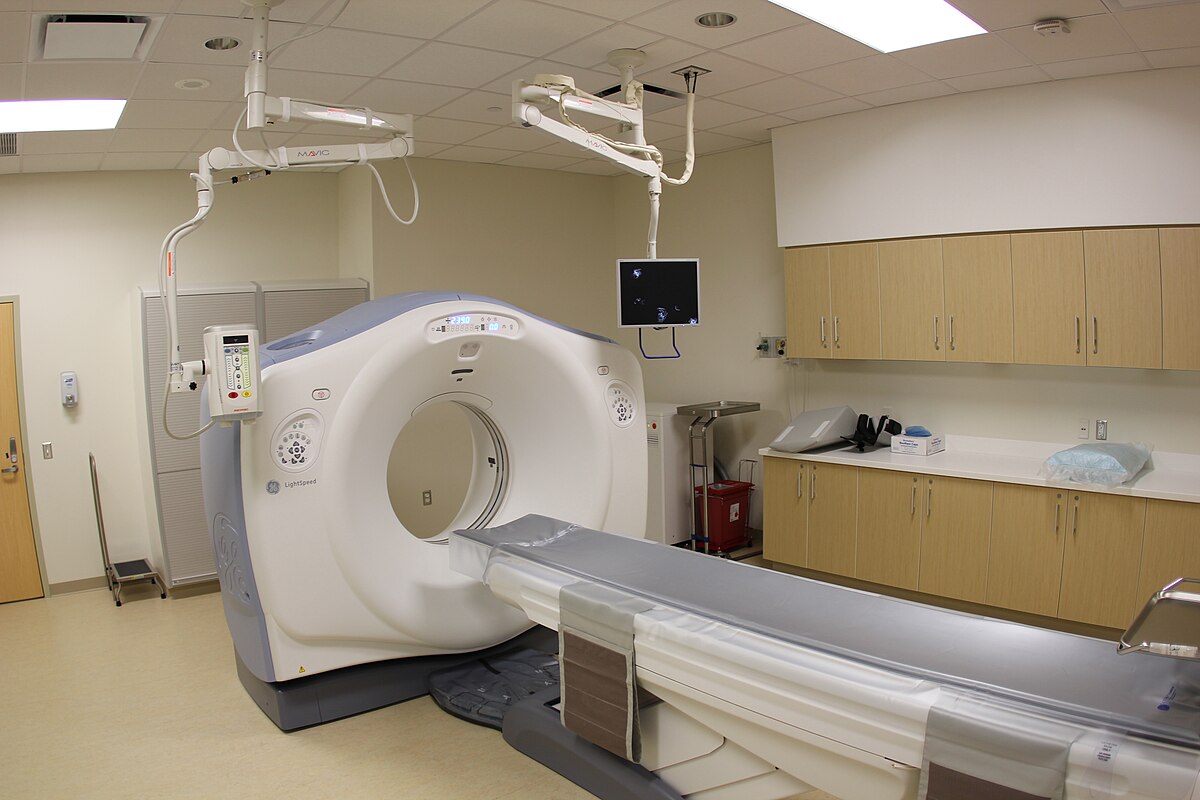
I ended up arguing, demanding that I get more definitive testing done as to what this was and what could be done about it. I explained how many times I went to the emergency room for this pain and that it was getting worse and more frequent. After repeating the story to doctors over and over, I found a specialist that suggested we do a scintigraphy ejection fraction (EF) test.
Scintigraphy is a scientific diagnostic test within nuclear medicine. It means doctors inject you with radioactive materials so they can see how specific organs or tissues behave. We know what’s normal and what isn’t. So without cutting you open, science has a way to see what’s going on inside. It’s very accurate and you can make decisions based on these kinds of diagnostic tests. The EF test looks at your gallbladder to see if it’s functioning properly. A normal gallbladder has an ejection fraction result of above 35%. My test results were well below 20% and we now had some evidence of the cause of the painful attacks.
I had to fight just to find out what was wrong with me. It was remarkable to learn about these ejection fraction tests because they purposely inject a substance that basically tests a portion of your digestive system, stimulating the gallbladder. This often makes people nauseous or sick because it mimics eating too much. But in my case, I was sick before, during, and after the injection. I was also worried that an attack would happen while I’m trying to lie still on the table during the test. I was told what to expect for the test and I knew I failed the test because nothing happened – which was a good and bad thing.
I took these findings back to the specialist and now began searching for surgical options. I was also told that if I let this situation get any worse it would result in emergency open surgery with much worse risks and longer recovery time. I now had to find a surgeon that was also covered by my insurance and it had to be soon.
Not only was I terrified, I was frustrated, and now even more worried. This was to be my first major surgery. And you know what that means – search the internet for gallbladder surgery stories.
Again, the internet and free information is a good thing, but there’s so much misinformation online. Recognizing the misinformation is impossible without a good science education. Reading the misinformation out of desperation only makes you more worried about the inevitable. I read stories about bad doctors, home remedies, and even do-it-yourself exercises – all were arguments from ignorance being perpetuated on the internet. I just wanted to read honest stories from other people going through my situation. I was looking for support from people that went through similar experiences.
Sometimes you just want to be told everything will be alright.
Major Surgery
There’s no other way to put it, any major surgery comes with risks. Any doctor that downplays the risks or says there isn’t any risk is being dishonest. It may scare the patient, but they must know the truth. I was scared to death. I have helped treat patients in emergency medical settings before, but I had never been the patient myself. After getting a second and third opinion, I was told I needed to have my gallbladder removed as soon as possible.
Recent medical advancements meant that you could have something called a laparoscopic cholecystectomy performed. Rather than make huge cuts, doctors can pump your abdominal cavity with gas to expand it and then use special tools to make small cuts and remotely remove the gallbladder, typically through the belly button area. This is remarkable, but it’s not without major risks. The risks were downplayed to me and in some cases totally dismissed by some of my key medical providers. I was not prepared for what happened next.
I was told my surgery would be routine and not to expect anything bad to happen. I was told I would be up, walking, and eating a cheeseburger the same day of the surgery. I was told “nothing bad ever happens” by someone I cannot legally mention, unfortunately. I would identify some of this dishonest information as coming from key medical providers. My surgery was to be just under an hour long and I could go home the same day.
I had to stop writing portions of this, take a break, and go for a walk because it’s kind of emotional. I’m a scientist that tries to separate thinking from emotion, but the gravity of this situation is so much heavier than business as usual.
I needed the surgery, no doubt. But this one event would change my life forever.
My anxiety increased, as if I was on my way up to the top of the tallest roller coaster ride. I had no idea what to expect. Everything I had read only increased my fear of this surgery. But I was told not to worry about it and that I would be walking around and eating cheeseburgers after the surgery – as if my life would go back to normal.
I fought very hard to find the soonest surgery appointment. I had the surgery scheduled in less than a week. I was told how it would work, what I could wear, and that someone would have to come pick me up after surgery because of the general anesthetic, and the fact that I would have a tube in my chest to drain blood.
I cannot fully describe the morning of the surgery because the amount of anxiety and fear I had was astonishing. I was depressed, afraid, lonely, overweight, and desperate. I couldn’t find anything to ease these feelings so I was also hopeless. I just knew this had to be done to end the unbearable pain.
I signed the final papers during the registration process, first thing in the morning the day of the surgery. I then got changed and tried to take deep breaths. The day has come. I said goodbye to a few people I thought were close to me at the time, explaining I was about to go in for this unexpected surgery. I felt so helpless. Life was out of my control now.
I don’t remember much other than being rolled into an operating room. Before I went to sleep from the general anesthetic, I was asked basic questions about my name, date of birth, and purpose of surgery. Some of the surgery team introduced themselves, but I don’t remember any of their names. Just relax, I was told. I don’t remember anything else.
Isn’t it amazing that you can fall asleep just to wake up to something different, terrible, unfamiliar, uncomfortable, a total nightmare.
The Aftermath
I woke up from the surgery in pain. This is unusual because you’re already on powerful pain medications during the surgery. This should have been a warning sign to the entire staff. I really couldn’t move and I knew something was wrong. I was moved to a recovery room and told a nurse that I felt “odd” and that I couldn’t even sit up on my own. I was also in pain, I told her. She got something oral ordered but it didn’t have any effect on me.
I distinctly remember the nurse telling a certain person I cannot name here for legal purposes that “something is wrong, he’s in pain, and the meds didn’t help.” But despite all of this, I was told “it’s just the gas we pumped him with” and that I should just “walk a mile and eat a cheeseburger.” I just needed to “walk because of the gas.” I knew this was a total dismissal of my pain, the nurse pleading with others, and disregard of common sense. I was now told I would be left alone in the recovery room to change so I could be discharged.
I was unstable, just after major surgery, couldn’t sit up, in terrible pain, and on top of that I was left alone. After all I’ve been through to this point, the worst hasn’t even happened yet.
As soon as the nurse left, I attempted to do what they told me to do. I tried to sit up in the bed and tried to put my shorts on. As soon as I tried to sit up, I felt the worse pain of my life. The room started to spin, I had trouble breathing, I lost all vision, and I felt extreme pressure in my head, almost as if I was standing in heavy rain with the lights off.
This pain was so unbearable and I couldn’t breath – and I was alone in the hospital recovery room. I couldn’t talk. I couldn’t reach any call button. I accepted that I was dying and this was it. I didn’t have any time to call my parents, get on social media, nothing. It happened in seconds. Within seconds of this unbelievable pain, I fell to the floor and went unconscious.
I have no idea how much time passed but I eventually woke up in a puddle of my own urine on the floor in unbearable pain, unable to speak in complete sentences, unable to move, no energy, sweating horribly, and having a hard time thinking. My survival instincts and medical training set in. Instead of getting emotional, I first thought I was dead and floating, so I took a second to observe my surroundings and feel my skin. I realized I was suddenly awake and fighting for my life. It was very hard to stay awake and breathe. I had to remain calm.
I was still alone, so I crawled a little bit to a hanging code call button and pushed it. I then rested because I knew help was on the way. At least I knew I wouldn’t be alone for long if I died.
When you’re about to die, I would say the worst feeling is being alone. I f——g hate that feeling. It follows me to this day. I pushed this button and within seconds had countless people surrounding me on the floor.
“What happened to you?” “Oh my… call…” “Call rapid response…” “He looks bad…” I couldn’t really speak much but I heard them all talking and starting medical procedures on me. I couldn’t breathe and just kept trying to stay awake so I could understand what was going on. It was all happening so quickly.
After all I’ve been through, this was just the start of a terrible nightmare.
Immediate emergency tests revealed I now had a temperature, I was sweating enormously, in tachycardia, had right bundle branch block indicating MI, was severely cyanotic, not fully alert, and in horrible pain. I absolutely knew something was wrong and I explained to them about me pleading to not be left alone or discharged and then this happening.
It turns out that when you die, your body relaxes (obviously). So you tend to urinate yourself. That’s what happened to me. You lose control, stuff happens. While this is embarrassing to the layperson, it’s an emergency indication to a medical professional. You might be in a life and death situation. I was now in a life and death situation.
I remember the helplessness I felt coming back. I knew I wasn’t going to get to go home. Something big was going on and I was the center of attention for this emergency room – not something you want.
The emergency physician in charge ordered an emergency CT scan. Before I even got out of the tube, I was handed a telephone on a cord, connected near this imaging machine. How bizarre, I thought, since it seemed to be a phone from the 1990s. I am flat on my back and cannot move – a position I would be in for weeks. I will never forget that call. I was given a phone while lying in this tube and the person on the other end said they have an urgent matter that cannot wait. This is all new to me and I’m already feeling lost and hopeless.
The voice on the phone said, “you’ve got a massive bilateral pulmonary embolism, it’s bad.”
Another physician made the remark that this is one of “the largest ones” he’s seen yet. I had a real hard time with this because it’s such bad news that your brain wants to deny that its hearing it. I asked if I was going to die.
“You’ve got a 50-70% chance of survival. We will do all that we can.”
I started to cry, of course. There’s nothing like being that close to death, feeling so alone and helpless.
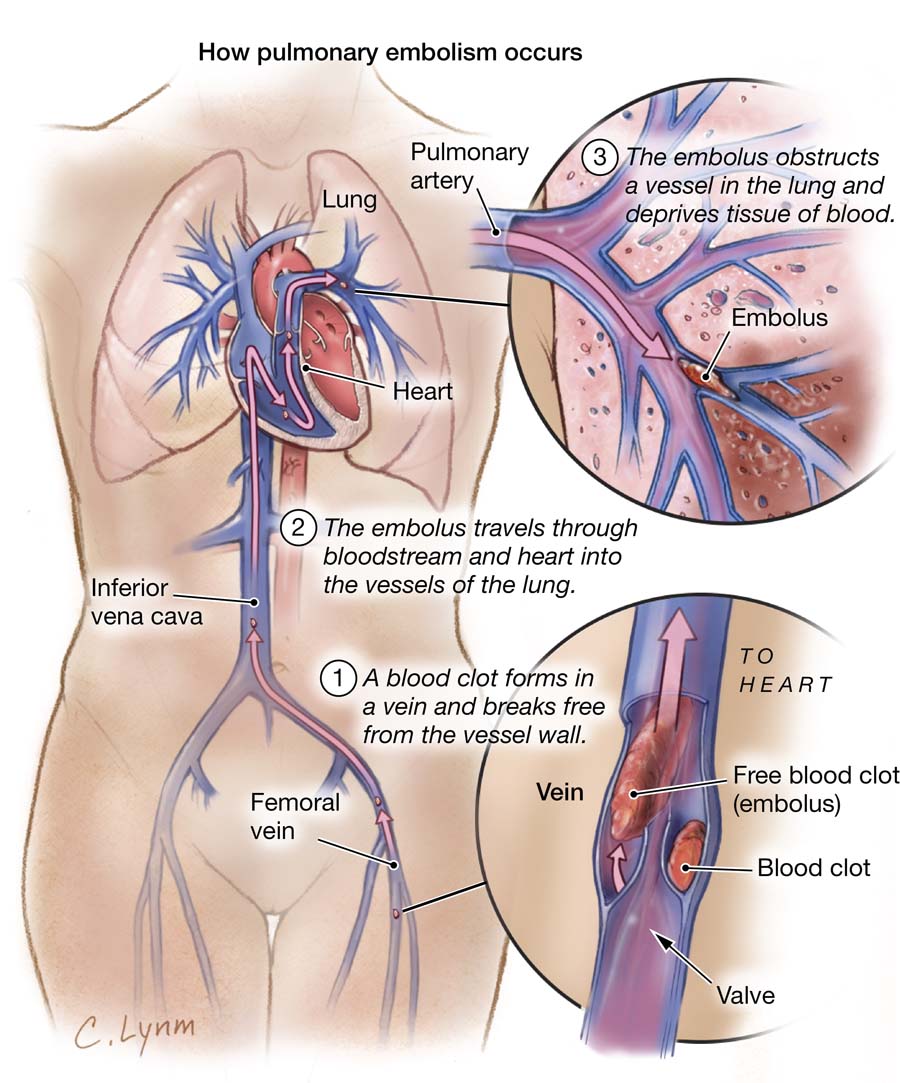
Meanwhile, here’s the scientist in me wondering in awe – because here was the purest demonstration of objective science in action – no peppering of information with emotion or feelings, no worries about biases, no politics, no social media posts, no advertisements, no talk shows, no religion, just raw, hard facts communicated as directly as possible. Science doesn’t care about your feelings, that includes my feelings. How cold of a doctor to be so direct with me. That doctor scared me. What about my feelings? Why can’t they just say I’ll survive? The things that go on in your head at times like this are just astonishing.
A blood clot can block your heart and lungs. My surgery caused my blood clot. They typically form in the legs and are deadly if they break off and travel to the heart and lungs. I had a massive clot and my heart had enlarged as it was pumping against it. I was shown medical imagery of my heart working against the clot and how it had enlarged beyond normal size. This is why it was hard to breath, I had no energy, my pulse was fast, and I couldn’t speak in complete sentences. Surgeries increase the risk of blood clots, especially when someone is put under general anesthetic — any extended period of inactivity. You should never be afraid of necessary surgeries, but always have an understanding of the risks.
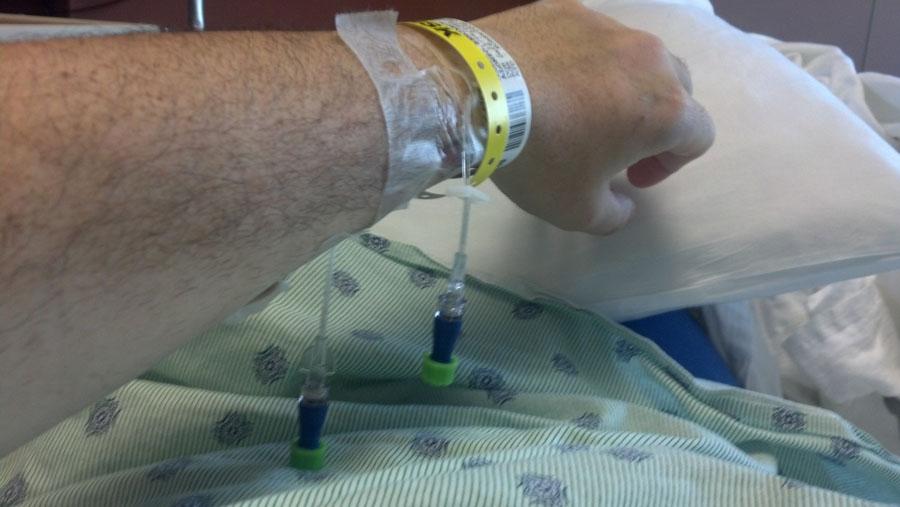
I was moved to the intensive care unit (ICU). I had lots of tubes and needles sticking out of me. I especially didn’t like having a catheter in to go to the bathroom. I had two IVs in the left wrist area and two in the right. I also had an additional IV near my chest. This is because different medications were separated and they needed multiple routes because of my condition. It meant that I couldn’t hold or write anything because it was painful and uncomfortable.
I was told any additional clot would kill me so I need to start blood thinners immediately to try to dissolve the current clot.
Terrible Dilemma
Reality started to set in as I kept hearing medical helicopters land just outside the window of my ICU bed. Doctors were huddling over me all the time and could hear them standing in the door area discussing my options. Since I couldn’t really talk, I was listening.
I heard the doctors tell my parents they considered having a helicopter take me to a specialty hospital to perform a radical procedure to physically remove the clot because it was so big. They made phone calls to other specialists, but decided it was too risky. They explained that the problem with the procedure is I’ve already lost so much blood from the surgery and blood thinners that the procedure itself might kill me. I don’t know that they realized I could hear everything they said, I wasn’t asleep.
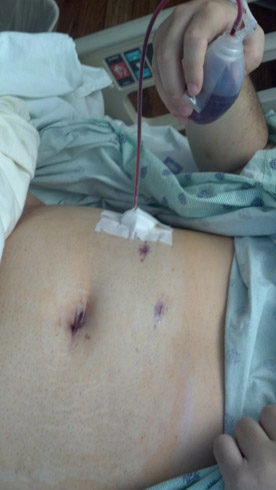
People made mistakes. I won’t name any names, but I was told that someone did a Heparin drip wrong. This is a blood thinning agent, called an anticoagulant. If anticoagulants are incorrectly used, they can cause a stroke or kill someone. After this happened, I was now told I needed to have “stomach shots” of Lovenox, another anticoagulant.
Are you afraid of needles? Stomach shots? My situation was bad and I had no choice but to accept this dilemma. This long needle was pushed in near the center of my stomach, kind of like a diabetic injection. It immediately burned and they tell me that means it’s working. I hated the stomach shots.
The idea was anticoagulants could help save my life by dissolve the current clot and preventing future clots.
The problem with anticoagulants after major surgery is you may bleed too much. After all I had been through, I was now bleeding to death – another dilemma. I had no energy, I looked pale, and things looked bad.
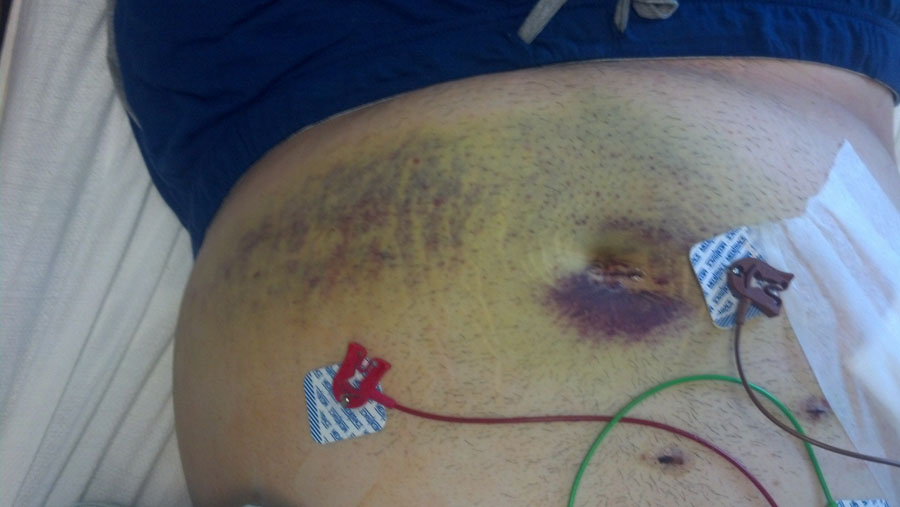
I had a few blood draining tubes attached to me and they were being emptied frequently. This is worrisome because you literally get to see yourself losing blood. My abdominal cavity had also swollen because of the surgery and a collection of leaked blood. I also developed a large hematoma on my liver from the surgery, about the size of a baseball.
The oxygen system I had been attached to started to dry out my membranes so I was now bleeding in my mouth and nose, causing me to choke. The blood thinners made this worse by promoting continued capillary bleeding.
My stomach area was covered with large purple spots from internal trauma (damage) and ongoing bleeding.
My kidneys began to show signs of damage. Your body gives off enzymes that can be detected on blood tests, which is good to catch problems before they are terminal.
By now, I was told I needed to have urgent blood transfusions because I had lost a lot of blood.
I was being stuck so many times by needles that the nurse staff was running out of places to draw blood or start IVs so they had to rely on specialists just to place lines in me as well as pediatric kits to draw blood from my fingertips. The pain from being pierced so many times is just astonishing. It will stick with you for the rest of your life.
Blood transfusions are serious business. I was told there was a risk of rejection and kidney failure. Given the situation, I had to find some kind of calm and endure it. Any one of these dilemmas seemed so overwhelming.
Challenges
Recovery is an interesting word. I think it’s misused and applied to way too many irrelevant circumstances. I guess you could call what happened to me next some kind of recovery, but I call it an ongoing challenge. This is one of the hardest things life has thrown at me. I was missing body parts, my lifestyle had to change, and I still couldn’t walk on my own. I won’t even discuss how missing a gallbladder changes your life by itself. This long road just started. I had no idea how to handle all of this – I still felt alone and helpless.
Not being able to sit up or walk is a huge challenge for someone that’s usually mobile. My work requires movement. Going to the bathroom, yep, movement. I was in the hospital for about a month. Most of that time I was lying flat in a bed hooked up to all kinds of things. I did have some people try to move me to prevent future blood clots, train me to increase my breathing strength, and to begin to walk again.
About two weeks after anticoagulants and blood transfusions, I was told the clot had dissolved. I still had no energy and had trouble breathing. I still couldn’t walk. I had a tough decision to make – keep up with the anticoagulants and bleed to death or come off of them and begin to recover – with the risk of developing another clot. I took the calculated risk, especially after good guidance from another physician that agreed with my plan. I was not getting any sleep in the hospital and my condition was now getting worse because of aggressive treatment. That’s a good and a bad thing. It means making an informed, sound decision. It’s so critical that patients make informed decisions and have good doctors to help guide them through it all.
I was discharged within a few weeks. They used a wheelchair to take me to a car. When I got home, it took some time to walk to my door. That’s when I realized this challenge isn’t over.
Within two weeks of being discharged, I had a walker. I couldn’t walk very far on my own. I had students carrying my stuff to and from my classes.
I really appreciate these students. They came in early and stayed late just to help me. If you ever run into me again in life, I owe you a drink or something. Good people are hard to come by. I’ve said I’ve learned so much from this experience. I also have a lot to share and say on a variety of subjects. I think what I have to say can help countless other people. Some of my students encouraged me to share this story.
These kinds of unexpected, sudden events are the ultimate test of your strength and support network. You find out who you can rely on, and it might shock you. While I was in the hospital, I really didn’t hear from the people I thought I was close to. I was let down by countless people. It profoundly saddens me because I know I’m a good person and deserved better than this. So many things had happened to me that indicated I needed to change everything in my life. How do you do this when you feel alone? How can you face challenges when you’re not finished with the biggest one? Where do you start? Where do you go?
Acceptance
I was still fighting to see medical specialists to address the aftermath of the surgery. I had a cardiologist, hematologist, general surgeon, gastroenterologist, etc. The costs were enormous. My month ICU stay was almost half a million dollars by itself. If you weren’t a billionaire, you couldn’t afford such a bill. Life was throwing so much at me at one point, I had no choice but to accept it. I wanted to make sure I could put this event behind me and that meant more testing.
I was cleared for history of blood clots; it was only the result of surgery, I had no clot factors. The blood clot dissolved. I discontinued anticoagulants (they have dangerous side effects when not absolutely necessary). My Foley catheter was removed. My drain tubes were taken out about a week after being discharged.
I accepted that life would be different but that I could make it into something new. The “statistics” were against me, but I’ve overcome so many statistics before. I have tremendous self-determination. I was determined to become something better, to regain my strength, to accept this sudden challenge. It was rare but not impossible – never forget that.
Hard Work
It took about 6 months to walk normally. I was anemic for a long time after the blood transfusions. In the middle of summer, I felt like I was standing in a freezer. I couldn’t really lift anything and every time I stood up, I suddenly had a fast heart rate. I began some physical therapy of my own, regularly walking, reading, watching funny YouTube videos, writing on forums anonymously, trying to stay positive in the middle of this mess. People that I will never personally meet helped me tremendously through dark times.
I continued to work throughout this entire experience. I never got any paid time off and didn’t get a single visit from anyone at work the month I was in the hospital. Several students wrote negative reviews about how I didn’t grade their work fast enough while I was in the ICU. But this is irrelevant because their work was graded correctly in the end – I did my job under tremendous, dire, adversary circumstances – of which not many would be capable of working under.
Since this first surgery event, other big things happened to me as a result. I had other surgeries that I’ve also had to deal with, but I will not go into the detail of that for now – maybe later. It’s been a very harsh series of experiences, lessons, and life changes I’ve had to endure.
This experience reminded me how important it was to take care of yourself. Prevention is key. It reminded me never to hesitate to seek professional medical care.
It’s critical that we address our broken healthcare system, finally throwing aside irrelevant biases and political garbage. Healthcare should be a right, it’s about happiness, survival, productivity, and it involves real people. It reminded me how important science was in our everyday lives. I had to be accepting of objective science. When you’re overweight, you increase your risk for all kinds of things – not to mention remaining unhappy because of your weight. I had been overweight for some time and finally decided that I was going to make some drastic life changes. This was likely a contributing factor for my blood clot risk during surgery. I had to accept that reality and be faced with the challenge of what to do about it.
Changes are coming.
A New Life
I wanted a new life. I needed to lose weight, exercise, eat right, recreate myself, open my mind, try new things, and live life to the fullest. Laziness says I can’t, science says I can. I wanted to achieve more, to better myself, and help others along the way. I had some major goals and bold determination. I didn’t want to be seen by anyone as I worked on my new life. I wanted my struggles to also be private so I wasn’t distracted.
Multiple physicians told me I had a 1-3% chance of losing any significant weight because most people don’t want to do the hard work. Surgery is a dangerous option with consequences but most people don’t do that either so they keep eating until obesity eventually kills them. I had some tough decisions to make. I decided to lose weight by applying science, strictly following version of the keto diet and consistent rigorous exercise. I would spend hours a day at the gym – a place that has now become a part of my new life. I started slow and worked my way up to more series exercise.
There were times when I failed and thought about giving up. People said and did hurtful things to me that made it even more difficult. Sometimes exercise would be so painful that the people in the gym didn’t notice my tears because it was mixed with sweat. I just kept telling myself all of this hard work was going to pay off one day.
I exercised regularly and started to eat right. I pretty much didn’t drink anything but water – a scientifically safer, smarter strategy to dieting. I got outside more, developed new exercise-intensive hobbies and started getting into good habits. I saw the weight coming off the first week. Any significant weight loss, that is to be effective in the long-term, takes time. You don’t see results immediately, but you develop a hunger for more once you start to experience success.
I was now down a few pants sizes and I could notice the difference. It also meant cutting out junk food and not being a part of crazy drinking parties or bad eating habits for a long time. Our country has an alcohol and obesity epidemic – and it shows. Even though this didn’t immediately kill the participants – it will eventually cause death and it costs everyone else.
I made a decision to stop with excuses and work on my life.
Motivation and support are something you need for huge tasks, it’s human nature. I want to be as objective as possible in sharing this with the world, but I have to share some personal feelings as well.
Life goes on and it seemed cruel that I was alone, nobody encouraged me, I had no consistent support system, and that life seemed unfair. But I learned to never let these feelings stop you. Things that were once meaningless clichés to me are now powerful truths.
That feeling of achievement when you reach your goal is like the best sex, best drug, best high, just the best feeling ever. The more you’ve been through, the sweeter the feeling of success. Once you experience success, you are thirsty for more.
And when you surround yourself with positive, stable, successful, objective people it really has a tremendous impact on ensuring you’re on the right path.
I also want to encourage others that achieve to share their success. There are people that need to hear the things we have to say. Accomplishments can demonstrate processes to people. Success is a good thing and we need to stand up, even if it’s not popular or worthy of front page news. There are desperate people that need hope.
Achievement
I pushed myself so hard over the past few years. I’ve gained a rare amount of education, skills, and talents. I’ve gained lots of useful licenses and certifications. I’ve diversified my expertise and income sources. I’ve strengthened my body unlike ever before – becoming athletic and have a normal body mass index (BMI).
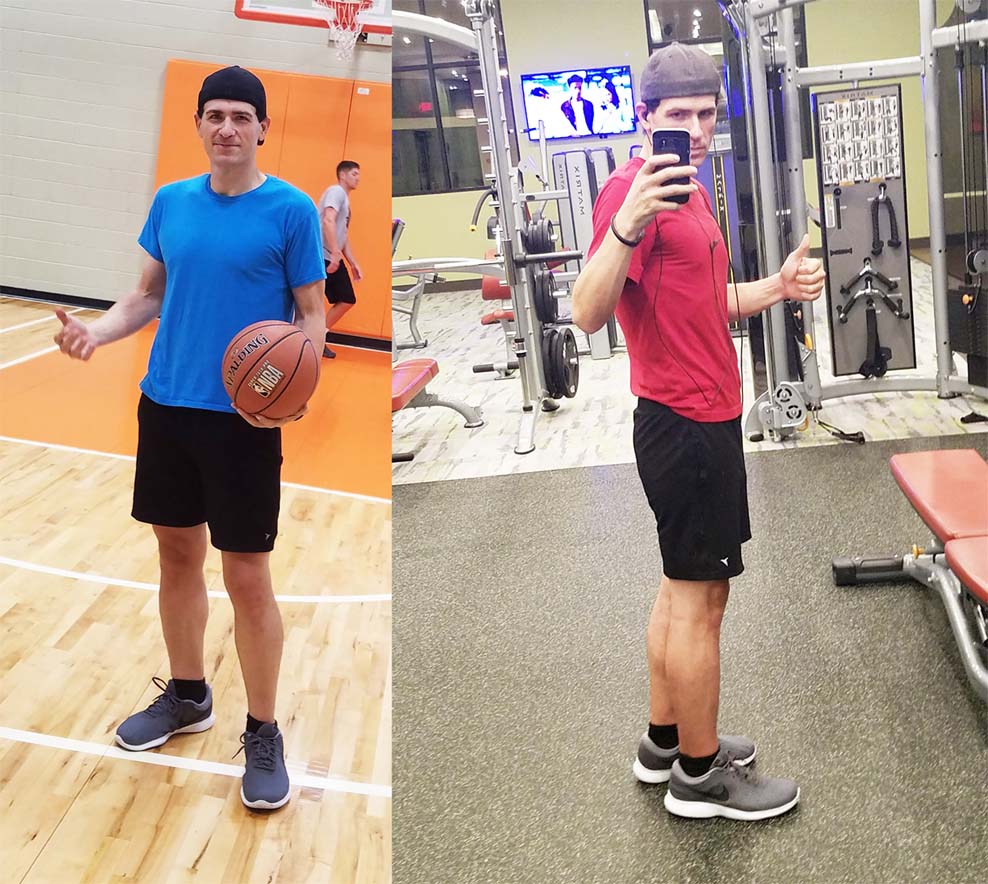
I’m down over 14 pants sizes. I’ve lost well over 100 pounds. I’ve got a tight chest that I’ve always wanted. It took about 10 months to lose that much weight. I had to buy all new clothes last year – in celebration of meeting and exceeding my goals. You’re literally a new person. Not only did you lose weight, you reduced your health risk factors. Losing this much weight by hard work, eating right, and exercising, is a huge deal. I still cannot believe it. American health status is so bad that a normal BMI is an accomplishment by itself. If you’re athletic and regularly exercise, you’re in a rare group of physically fit people.
I go to the gym almost every day. I run at least 5 miles a day. I swim, bike, and skate. I’ve turned into a fitness junkie, and that’s ok with me.
Life isn’t always easy. We must be resilient creatures.
At one point in my life, I lost my job, home, car, independence, and all of my money. I ended up selling everything I owned and lived on air mattresses for years. I lived off of noodles and weekly dollar pizza deals. Bad influences can also encourage you to remain in this bad environment. Those same bad influences can distract you from working on yourself or towards specific goals. They can make even the simplest tasks seem overwhelming.
Big life events should make your reflect. But it shouldn’t take a big life event to stop, take time, and reflect on your life. Examine yourself.
Looking back several years ago is like night and day to me. Today, I’m a very stable, successful person, and I feel that even if the economy collapsed, I would have the skills and resources to make it or do something else. This is textbook resilience and it’s something that should be promoted as soon as someone is born. It’s missing from our textbooks, political leaders, and biggest talking heads. This is how you should approach a problem – have a mindset and critical thinking skills to go about it, to make it through it all, and to become something better in the end.
I can say that I’ve lost so much over the past few years — but I’ve gained many priceless things. I hope to meet other people with similar experiences. I look forward to surrounding myself with more positive, hard-working, adventurous, open-minded, deep people. Having a real support system can make a huge difference – it makes life so much easier.

Lastly, what can I say about science?
Science is my hobby and profession. It has literally saved my life — more than once. I can’t stress enough that great things happen when you leave behind outdated thinking systems and embrace science. Science isn’t just some boring thing that happens in the lab, it’s the best way to live your life or to solve any kind of problem you’re having, especially when life throws something big at you when you least expect it. Science is the best way to meet a challenge. I researched my options by studying various science content to see how it could apply to my life. And then I applied science to my life. Embrace science in your lives and see the difference it makes.
I have a lot to say and I hope some of you will join me along the way. Thanks for reading.
I would love to hear from people that experienced a blood clot or had a gallbladder removed. Comment in the comment section below.
More about author.
